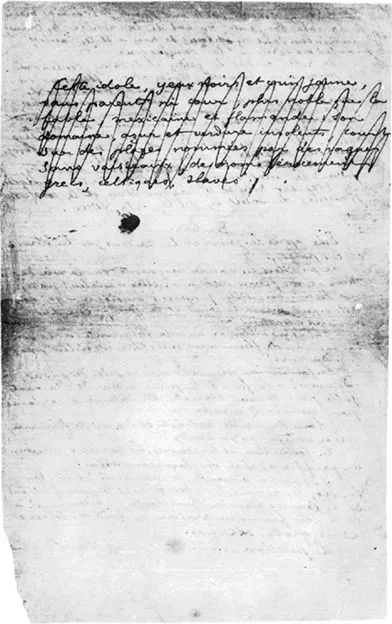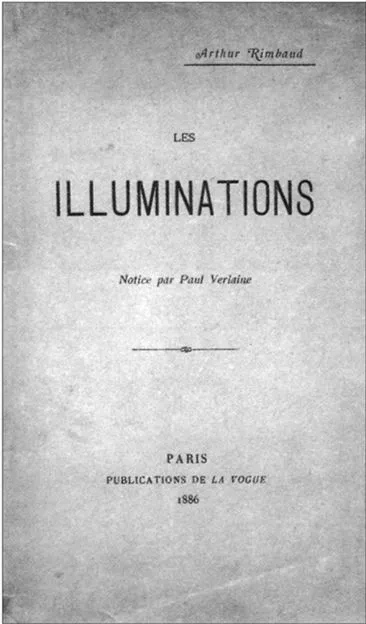I invented every celebration, every victory, every drama. I tried to invent new flowers, new stars, new flesh, new tongues. I thought I had acquired supernatural powers. Well then! The time has come to bury my imagination and my memories! A fitting end for an artist and teller of tales!
Free from all morality, I who called himself magus and angel, surrender to the earth in search of duty, ready to embrace life’s rough road. Peasant!
Am I wrong? Will charity be a sister of death?
Finally, I ask forgiveness for feeding on lies. Okay: let’s go.
And not even one friendly hand! And where can help be found?

Yes: the dawn is harsh, to say the least.
But victory is mine: everything moderates, the grinding teeth, the hissing fires, the putrid sighs. The filthy memories are wiped away. My final regrets flee—my jealousy of beggars, brigands, friends of death, rejects of every stripe. Were I to enact vengeance against all the damned!
One must be absolutely modern.
No more hymns: remain on the road you’ve chosen. Brutal night! Dried blood burns on my face, and nothing is near me, only that unbearable bush … Spiritual combat is as brutal as battle between men; but the vision of justice is God’s pleasure alone.
Nonetheless, the eve is here. We welcome an infusion of true strength, and affection. And at dawn, armed with fiery patience, we’ll at last enter glorious cities.
Why was I asking for a friendly hand? My biggest advantage: I can laugh off truthless loves, and strike down duplicitous couples with shame —down below, I experienced a hell women know too well—and now I will manage to possess truth in a single body and soul.
April–August 1873

From the stack of papers Rimbaud gave to Verlaine at their last meeting in Stuttgart. The poem is “Enfance,” from Illuminations, likely among Rimbaud’s final poetical works.

After the idea of the Flood had receded,
A rabbit rested within swaying clover and bellflowers, saying his prayers to a rainbow spied through a spider’s web.
Oh what precious stones sunk out of sight, what flowers suddenly stared.
On the dirty main drag it was back to business; ships went to sea, piled on the water like a postcard.
Blood flowed—at Bluebeard’s, in slaughterhouses, in circuses—wherever God’s mark marred windows. Milk, and blood, flowed.
Beavers dammed. Steam rose from coffee cups in small cafés.
The mansion’s windows were still streaming, mourning children within contemplating amazing scenes.
A door slammed, and the child whirled his arms through the town square, movements understood by weathervanes and weathercocks everywhere, beneath a tumultuous downpour.
Madame 

 put a piano in the Alps. Mass and First Communion were given at the hundred thousand altars of the cathedral.
put a piano in the Alps. Mass and First Communion were given at the hundred thousand altars of the cathedral.
Caravans left. The Hotel Splendide was built atop a chaos of ice in the polar night.
Ever since, the Moon has heard jackals whimpering in thyme-strewn deserts, and club-footed eclogues growling in orchards. At last, in a violet, blooming stand, Eucharis said: Spring Is Here.
Rise, waters. —Foam; roll over the bridge and through the woods—black veils and organ strains—lightning, thunder—rise and roam. Waters and sorrows, step forward and reveal the Floods.
For since they relented—what precious stones have sunk—what flowers have bloomed—who cares! And the Queen, the Witch who sparks her blaze in a bowl of Earth, never tells us what she knows, and what we do not.
I
This idol, black-eyed and blonde-topped, without parents or playground, and nobler than Fables, whether Aztec or Flemish: his domain of insolent blues and greens borders beaches named by shipless waves, names ferociously Greek, Slav, Celt.
At the edge of the forest—dream flowers chime, brighten to bursting—an orange-lipped girl, cross-legged in a flood of light soaking the fields, her nakedness shaded, crossed, and clothed by rainbows, blossoms, sea.
Ladies promenading on terraces by the sea; toddlers and giants, gorgeous black women garbed in gray moss-green, jewels set just so into the rich ground of the groves, the unfrozen gardens—young mothers and elder sisters, faces flushed with pilgrimage, sultanas, princesses pacing in lordly gowns, girls from abroad, and sweetly melancholy souls.
What a bore, to say “dearest body” and “dearest heart.”
II
There: the little dead girl, behind the rosebushes. —The dead young mother comes down the steps. The cousin’s carriage creaks on the sand. —The little brother—(off in India!) in a field of carnations at sunset. —Old men buried upright in a rampart of wallflowers.
A swarm of golden leaves surrounds the general’s house. We’re in the south. You follow the red road to reach the empty inn. The château is for sale; its shutters have fallen off. —The priest must have fled with the key to the church. —All around the park, groundskeepers’ cabins stand empty … The fences are so high you only see the tips of trees rustling above them. But there’s nothing inside to see.
Meadows reach across to roosterless villages and blacksmithless towns.
1 comment